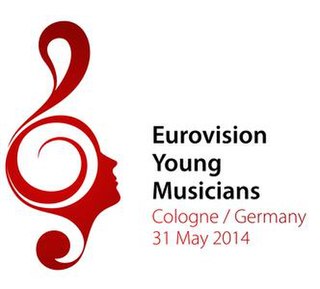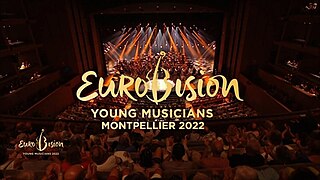
Switzerland has participated in the Eurovision Song Contest 64 times since its debut at the first contest in 1956, missing only four contests because of being relegated due to poor results the previous year: 1995, 1999, 2001, and 2003. Switzerland hosted the inaugural contest in 1956 in Lugano, where it also won. The country claimed its second victory in 1988, 32 years after the first, and its third in 2024, 36 years after the second win. The Swiss participant broadcaster in the contest is the Swiss Broadcasting Corporation.

The United Kingdom first participated in the Junior Eurovision Song Contest at the inaugural 2003 edition which took place in Copenhagen, Denmark. ITV, a member organisation of the United Kingdom Independent Broadcasting (UKIB) and the European Broadcasting Union (EBU), was responsible for the selection process of their participation from 2003 to 2005. The United Kingdom used a national selection format, broadcasting a show entitled Junior Eurovision Song Contest: The British Final, for their participation at the contests. The first representative to participate for the nation at the 2003 contest was Tom Morley with the song "My Song For The World", which finished in third place out of sixteen participating entries, achieving a score of one hundred and eighteen points. The United Kingdom withdrew from competing after the 2005 contest, but returned to the contest in 2022 in Yerevan, Armenia, with the British Broadcasting Corporation (BBC) replacing ITV as the country's broadcaster. The country withdrew again from the 2024 contest in Madrid.

France has participated in the Eurovision Song Contest 66 times since its debut at the first contest in 1956. France is one of only seven countries to be present at the first contest, and has been absent from only two contests in its history, missing the 1974 and 1982 contests. Since 2001, the French participant broadcaster is France Télévisions. Along with Germany, Italy, Spain, and the United Kingdom, France is one of the "Big Five" countries that are automatically prequalified for the final, due to their participant broadcasters being the largest financial contributors to the European Broadcasting Union (EBU). France has won the contest five times.
Eurovision is a pan-European television telecommunications network owned and operated by the European Broadcasting Union (EBU). It was founded in 1954 in Geneva, Switzerland, and its first official transmission took place on 6 June 1954. However, a year before the official launch, on 2 June 1953 the coronation of Elizabeth II was one of the first events to be broadcast across Europe.

Austria has participated in the Eurovision Song Contest 56 times since its debut in 1957. The country has won twice, in 1966 and 2014, and such it holds the record for the longest gap between consecutive wins — 48 years. The Austrian participant broadcaster in the contest is Österreichischer Rundfunk (ORF). Vienna was the host city on both of the occasions that the contest was held in Austria, in 1967 and 2015.

The participation of Spain in the Junior Eurovision Song Contest first began at the inaugural Junior Eurovision Song Contest in 2003 which took place in Copenhagen, Denmark. The current Spanish participant broadcaster in the contest is Radiotelevisión Española (RTVE). Spain used a national selection format, broadcasting a show entitled Eurojunior, for their participation at the contests. The first representative to participate for the nation at the 2003 contest was Sergio with the song "Desde el cielo", which finished in second place out of sixteen participating entries, achieving a score of 125 points. Spain did not participate from 2007 to 2018, but returned to the contest in 2019.

Cyprus has participated in the Eurovision Song Contest 40 times since making its debut in 1981. The Cypriot participant broadcaster in the contest is the Cyprus Broadcasting Corporation (CyBC). Its first entry was "Monika" performed by the group Island, who finished sixth. The country's best result is a second-place finish with "Fuego" by Eleni Foureira in 2018. Cyprus holds the record for most editions competing in the contest without a single win to date.

Ukraine has participated in the Junior Eurovision Song Contest since 2006. Ukrainian public broadcaster UA:PBC, has been responsible for the participation.

Eurovision Young Musicians, often shortened to EYM, or Young Musicians, is a biennial classical music competition for European musicians that are aged between 12 and 21. It is organised by the European Broadcasting Union (EBU) and broadcast on television throughout Europe, with some countries holding national selections to choose their representatives for the contest.

The participation of Georgia in the Junior Eurovision Song Contest first began at the Junior Eurovision Song Contest in 2007 which took place in Rotterdam, Netherlands. The Georgian Public Broadcaster (GPB), a member organisation of the European Broadcasting Union (EBU), have been responsible for the selection process of their participants since their debut. The first representative to participate for the nation at the 2007 contest was Mariam Romelashvili with the song "Odelia Ranuni", which finished in fourth place out of seventeen participating entries, achieving a score of one hundred and sixteen points. Since their debut, Georgia has never missed an edition of the contest. They are the most successful country in the contest, having won a total of four times, namely in 2008, 2011, 2016 and 2024. They hosted the contest for the first time in 2017 at the Olympic Palace in Tbilisi.

The Eurovision Young Musicians 2014 was the seventeenth edition of the Eurovision Young Musicians, held outside the Cologne Cathedral in Cologne, Germany, on 31 May 2014. Organised by the European Broadcasting Union (EBU) and host broadcaster Westdeutscher Rundfunk (WDR), musicians from fourteen countries participated in the televised final. This was the fifth time that the competition was held on an open-air stage. Germany previously hosted the contest in 2002.

Austria has participated in the biennial classical music competition Eurovision Young Musicians 19 times since its debut in 1982 and is the most successful country in the contest, with a total of six wins. Austria has hosted the contest a record six times, in 1990, 1998, 2006, 2008, 2010, and 2012.

The United Kingdom has participated in the biennial classical music competition Eurovision Young Musicians sixteen times since its debut in 1982, most recently taking part in 2018 after a 8-year absence. The United Kingdom hosted the inaugural contest in 1982 and won the contest in 1994. The country returned to the contest in 2018 as hosts, but did not return for the next editions in 2022 or 2024.

Ireland has participated in the Junior Eurovision Song Contest nine times since their first appearance at the 2015 contest. Irish-language broadcaster TG4 has been responsible for the country's participation in the contest, and organises a televised national final Junior Eurovision Éire to select the Irish entries. TG4 did not participate in 2020 due to the COVID-19 pandemic, but returned to the contest in 2021.

The Eurovision Young Musicians 2016 was the eighteenth edition of the Eurovision Young Musicians contest, which took place on 3 September 2016, outside the Cologne Cathedral, in Cologne, Germany. For a second consecutive time, German public broadcaster Westdeutscher Rundfunk (WDR) was the host broadcaster for the event, with Daniel Hope and Tamina Kallert being the presenters for the show. Musicians representing eleven countries with European Broadcasting Union (EBU) membership, participated in the contest, with San Marino making their debut, while Greece, Moldova, Netherlands, and Portugal decided not to participate in this edition. The candidates were accompanied by the WDR Symphony Orchestra Cologne, conducted by Clemens Schuldt. A five-person jury decided which of the participants would be awarded with the top-three prizes. Łukasz Dyczko of Poland won the contest, with Czech Republic and Austria placing second and third respectively.

The Eurovision Young Musicians 2018 was the 19th edition of the Eurovision Young Musicians contest. It was hosted by the United Kingdom, for the first time since the inaugural contest in 1982. This edition was a co-production between the European Broadcasting Union (EBU), the Edinburgh International Festival and the British Broadcasting Corporation (BBC) as host broadcaster. Musicians representing eighteen countries with EBU membership participated in the contest, with Albania making their debut alongside seven returning countries, while Austria decided not to participate for the first time.

The Junior Eurovision Song Contest 2019 was the seventeenth edition of the annual Junior Eurovision Song Contest, organised by Telewizja Polska (TVP) and the European Broadcasting Union (EBU). It was held on 24 November 2019, at the Gliwice Arena in Gliwice, Poland, following the country's victory at the 2018 contest in Minsk, Belarus, with the song "Anyone I Want to Be", performed by Roksana Węgiel. It was the first time Poland had hosted the contest, as well as the first Eurovision event to be held in the country since the Eurovision Young Dancers 2013.

The Eurovision Young Musicians 2022 was the 20th edition of the Eurovision Young Musicians. It took place at the Corum in Montpellier, France on 23 July 2022. The live show was hosted by French playwright Judith Chaine and Belgian radio presenter Vincent Delbushaye, with the Montpellier Occitanie National Opera Orchestra conducted by Pierre Dumoussaud. Organised by the European Broadcasting Union (EBU), this edition was co-hosted by French broadcasters Radio France and France Télévisions, as part of a summer series of music events called Festival Radio France Occitanie Montpellier.

The Junior Eurovision Song Contest 2020 was the 18th edition of the annual Junior Eurovision Song Contest, organised by Telewizja Polska (TVP) and the European Broadcasting Union (EBU). The contest took place on 29 November 2020, and was held in Warsaw, Poland, following the country's victory at the 2019 contest with the song "Superhero" by Viki Gabor. This was the first time the contest was held in the same country for two consecutive years.
















